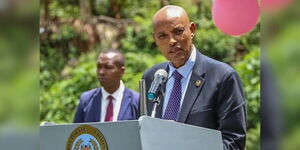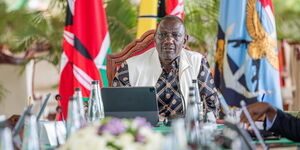Rarieda MP Otiende Amollo on Sunday took to Twitter to refute claims that DPP Noordin Haji has been unfairly targeting some communities in the latest war against graft.
In his defense, the MP cited the unfair distribution of the positions of power in parastatals and government corporations as the main reason most of the leaders involved in graft scandals were from selected communities.
“That many Kalenjins CEOs are facing graft charges is not ethnic targeting, is a testament to how unfair the distribution of these plum positions has been,” Amollo tweeted.
The Rarieda MP claimed that if these positions were distributed equally among the Kenyan tribes, there would have been an even prosecution of graft suspects from diverse communities.
“Otherwise, we’d be seeing equal opportunity prosecutions across the 43 Tribes,” he continued in his tweet.
His sentiments came after Nandi Senator Kiprotich Arap Cherargei accused Haji of ethnically profiling the Kalenjin community.
Cherargei, while speaking to members of the public on December 8, 2018, warned the DPP, DCI, and the EACC against destroying the careers of the Kalenjin sons and daughters in the name of fighting corruption.
He accused them on politicizing the war against corruption ahead of the 2022 succession politics in a bid to ensure that they lost.
“As the chair of Justice, Legal Affairs and Human Rights, which oversights investigative agencies in this country, we will not sit back and allow you to ethnically profile our people with vested interests, in bad faith and politically motivated charges,” he warned.
The Nandi senator’s threats came days after the DCI arrested the Kenya Pipeline Managing Director Joe Sang over allegations of theft.
Earlier on, Deputy president William Ruto had told his followers to remain calm and to avoid politicizing the arrests. He also asked the anti-corruption bodies to remain neutral and fair.
“Let us not politicize matters to do with independent institutions of governance, prosecutions, and investigations," Ruto asked his followers
"Those institutions must operate independently without instructions from anybody and without serving any ethnic, regional, or any other partisan interests,” he urged.












